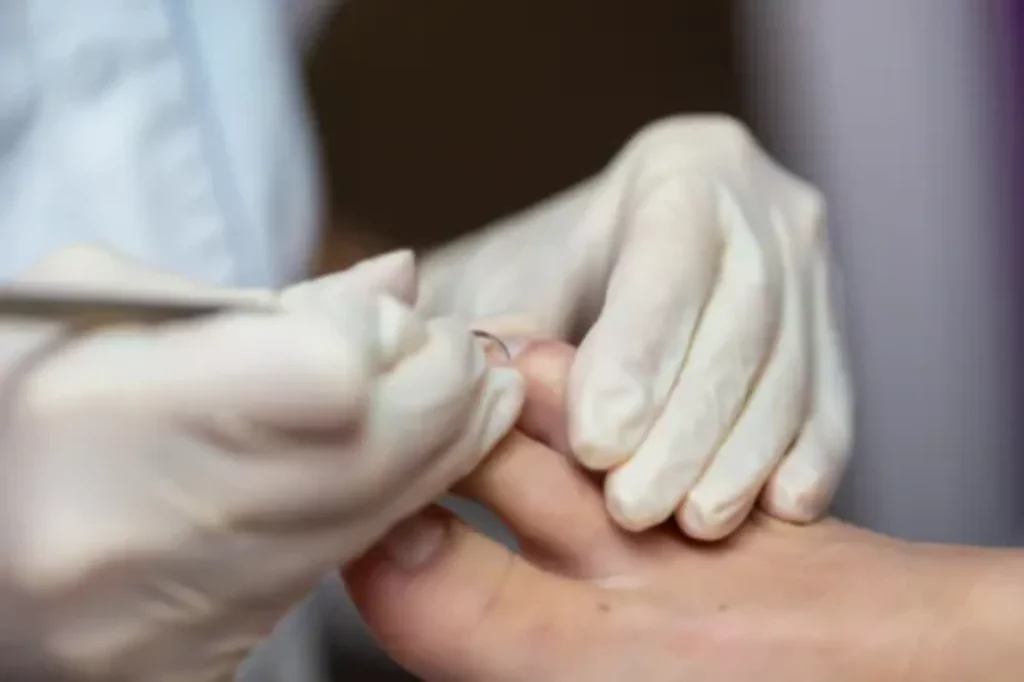Fungal nail infections generally affect the toenails, although it is not unheard of for them to infect fingernails. Fungi are also known as Dermatophytes, and they can live harmlessly but can also multiply and lead to infections. It is well known that fungi love dark, warm, and moist environments, so areas like your feet in your warm and sweaty shoes are an excellent breeding ground for them.
Typically, a fungal nail infection will begin at the edge of your nail and then spread to the centre. It will cause the nail to become discoloured and thicker in places, making it difficult to cut. Your toenails can also become brittle and break, and this can cause pain and swelling.
How do we treat Fungal Nail Infections?
A podiatrist can prescribe antifungal medication, as can your GP. You do need to take samples of the nail to determine what sort of infection you are suffering from and to ensure the correct medication is prescribed. The most common treatment is oral antifungal medicine. Topical treatment can also be prescribed, which is painted onto the infected nail, although the nail must be correctly prepared before treatment begins.
A more recent treatment is fungal nail laser treatment. It is a fast and effective way to treat fungal nails; each treatment lasts around 30 minutes. Typically, a fungal nail needs three to four treatments, but you can go about your everyday life immediately.
The lacuna method involves drilling small holes in the infected nail and then inserting an L4p-ikil antifungal treatment to penetrate the nail bed to the fungal spores. Lamisil is applied daily until the nail is free of infection.
Seriously infected nails may need to be removed via surgery, but do not worry about this as it will be done as minor surgery and under local anaesthetic.
Some ways to prevent fungal nail infections are:
- Keeping feet dry and clean
- Wearing cotton and moisture-wicking socks to allow your feet to breathe
- Do not share your socks or footwear with anyone else
- Wearing shoes made from breathable and natural materials
- Wash your towels and socks regularly
If you think you have a fungal nail infection, please get in contact and book an appointment; we will always do our best to help you!






